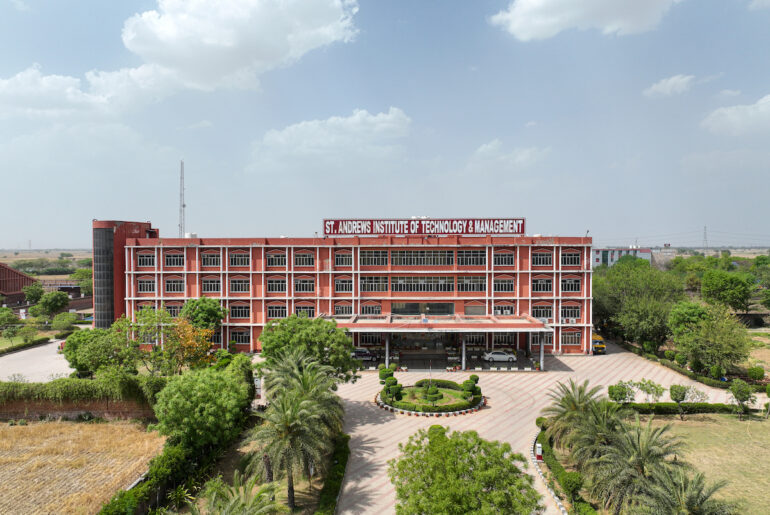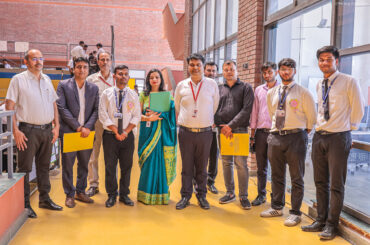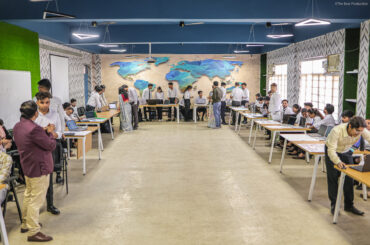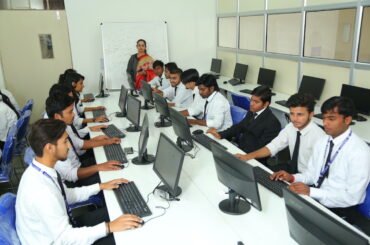BCA Eligibility
The eligibility criteria for enrolling in a Bachelor of Computer Applications (BCA) program typically include the completion of higher secondary education (12th grade) from a recognized board with Mathematics as a compulsory subject.
BCA eligibility criteria typically include a minimum of 50% marks in the 12th grade, though this requirement can vary by institution. Additionally, some colleges also admit students from vocational streams, as long as their education is related to computer technology.
These criteria ensure that students possess the foundational knowledge and skills necessary for the rigorous coursework involved in a BCA program.
Some of the most opted courses in India and St. Andrews college or different Engineering college or Management colleges are as follows:-
- Btech
- Btech CSE
- Btech ETCE
- MTech
- BCA
- BBA
- MBA
- MCA
- DPharma – St. Andrews College of Pharmacy
- BPharma – St. Andrews College of Pharmacy
- BArch – St. Andrews College of Architecture
Eligibility Criteria for BCA Course
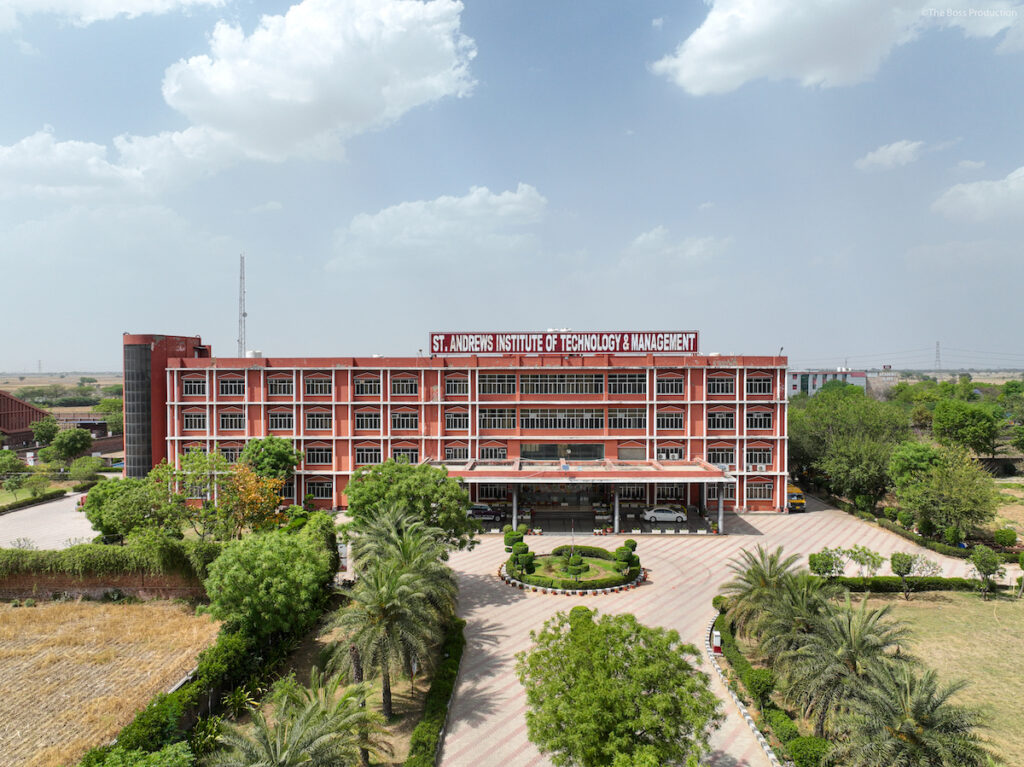
Here’s a detailed overview of the eligibility criteria of BCA:
Educational Qualifications
- For BCA eligibility, candidates must have completed their higher secondary education (10+2) from a recognized board of education, such as CBSE, ICSE, or state boards.
- The qualification should be from a recognized educational institution, ensuring that the certificate is valid and acknowledged.
- Most institutions require candidates to have a minimum aggregate score of 50-60% in their 10+2 examinations. The exact percentage may vary by institution.
- Some top-tier institutions may set a higher cut-off percentage, especially if they receive a large number of applications.
Subject Requirements
- For BCA eligibility, while many institutions accept students from all streams (Science, Commerce, and Arts), some may give preference to those who have studied Mathematics or Computer Science as one of their subjects in 10+2.
- Institutions that do require Mathematics may be looking for candidates with a strong foundational understanding of mathematical concepts, which are crucial for computer applications.
Entrance Examinations
Many universities and colleges offer BCA admissions based on the merit of marks obtained in the 10+2 examination. They create a merit list and admit students accordingly.
Some institutions hold entrance exams to determine BCA eligibility and shortlist candidates for the Bachelor of Computer Application program. These exams usually assess the candidate’s aptitude in areas such as:
- Mathematics: Basic and advanced concepts to assess numerical and analytical skills.
- Logical Reasoning: Problem-solving and logical thinking abilities.
- General Awareness: Knowledge about current affairs and general knowledge.
- Basic Computer Knowledge: Understanding of fundamental computer concepts and applications.
- Examples of such entrance exams include IPU CET, and others conducted by specific universities.
Age Criteria
- For BCA eligibility, candidates should generally be at least 17 years old at the time of admission. This ensures that the candidate has reached a level of maturity and educational experience appropriate for undergraduate study.
- BCA eligibility typically does not include an upper age limit for admissions. However, some institutions may set an age limit, usually around 21-24 years, although this practice is relatively uncommon.
Language Proficiency
- As the medium of instruction for most computer science undergraduate programs is English, candidates are expected to have a good command of the English language. This ensures they can follow the coursework, participate in discussions, and complete assignments effectively.
- Some institutions may require proof of English language proficiency, especially if the candidate’s prior education was not conducted in English. This can include scores from standardized tests such as IELTS or TOEFL.
Additional Requirements
- As part of BCA eligibility, some institutions may include a personal interview during the admission process. This interview evaluates the candidate’s interest in the field, communication skills, and overall suitability for the BCA program.
- In some cases, candidates may need to submit a statement of purpose (SOP) or a personal statement explaining their motivation for pursuing a BCA degree and their career aspirations.
Types of BCA Courses
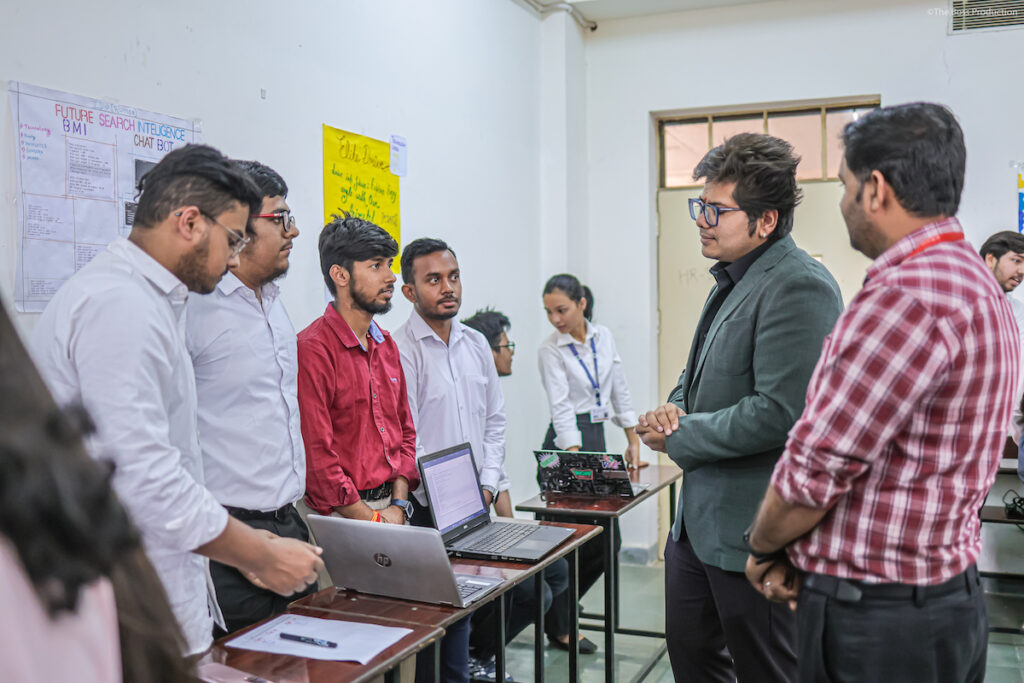
Here are some common types of BCA courses:
Regular BCA
This traditional full-time BCA course, aligning with BCA eligibility, is offered by universities and colleges. It usually extends over three years, divided into six semesters. Students attend on-campus classes and participate in practical sessions, projects, and internships.
Distance Learning BCA
Also known as correspondence or online BCA, this mode of study allows students to pursue their BCA degree remotely. They receive study materials through mail or online platforms and typically have the flexibility to study at their own pace while balancing other commitments. Examinations may be conducted online or at designated centers.
Integrated BCA-MCA
Some institutions offer integrated programs that combine BCA and Master of Computer Applications (MCA) into a single course. This allows students to earn both undergraduate and postgraduate degrees in a shorter duration, usually spanning five years. It may involve an additional year of study beyond the regular BCA course duration.
Specialized BCA Programs
Some colleges offer computer science undergraduate programs with specialized tracks or elective courses that allow students to focus on specific areas of interest within computer applications. Common specializations for BCA students include software engineering, web development, database management, networking, cybersecurity, and artificial intelligence.
BCA Honors
Bachelor of Computer Applications (BCA) (Honors) programs are designed to provide an in-depth understanding of computer applications and related subjects. They often involve additional coursework, research projects, and practical training compared to regular computer science undergraduate programs.
Bachelor of Computer Applications (BCA) with Industry Internship
Certain Bachelor of Computer Applications programs, adhering to BCA eligibility requirements, incorporate mandatory industry internships or on-the-job training within the curriculum. This allows BCA students to gain practical experience, apply theoretical knowledge in real-world settings, and improve their employability.
BCA with Foreign Language
Some institutions offer Bachelor of Computer Applications programs with the option to learn a foreign language alongside computer science subjects. This can be advantageous for BCA students interested in pursuing international careers or working in multinational companies.
Bachelor of Computer Applications (BCA) with Add-on Certifications
BCA programs may include add-on certifications or courses in specialized areas such as programming languages, software tools, project management, or digital marketing to enhance students’ skill sets and employability.
List of BCA Specialization
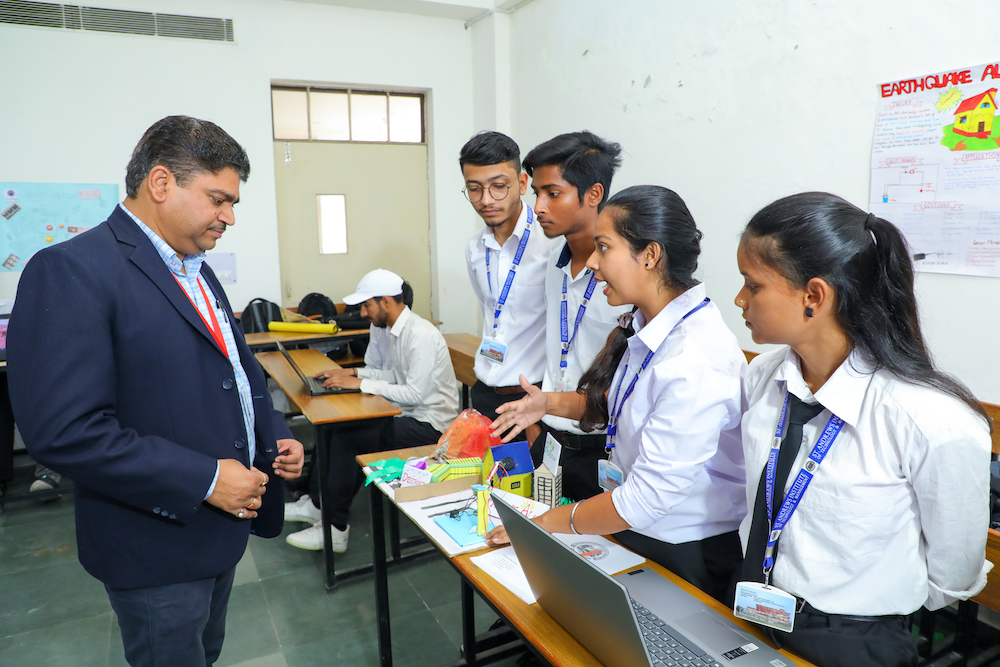
Here are some common specializations in BCA:
Software Development
Focuses on programming languages, application application principles, and application development methodologies.
Web Development
Concentrates on designing and developing dynamic websites, web applications, and e-commerce platforms using technologies like HTML, CSS, JavaScript, and various web frameworks.
Mobile Application Development
Covers the development of mobile applications for platforms like Android and iOS, including mobile app design, programming, and deployment.
Database Management
Emphasizes the design, implementation, and management of databases using relational database management systems (RDBMS) like MySQL, Oracle, SQL Server, etc.
Networking
Focuses on computer networks, network protocols, network security, and the design and maintenance of network infrastructure.
Cybersecurity
Concentrates on protecting computer systems, networks, and data from cyber threats and attacks through security measures, encryption techniques, and risk management strategies.
Data Analytics
Focuses on collecting, analyzing, and interpreting large volumes of data to derive insights and make informed business decisions using tools and techniques such as data mining, machine learning, and statistical analysis.
Artificial Intelligence (AI) and Machine Learning (ML)
Covers the theory and application of AI and ML algorithms for tasks such as natural language processing, computer vision, pattern recognition, and predictive analytics.
Internet of Things (IoT)
Focuses on the integration of sensors, devices, and networks to enable the exchange of data and automation of processes in various domains such as smart homes, healthcare, agriculture, etc.
BCA Admission Process
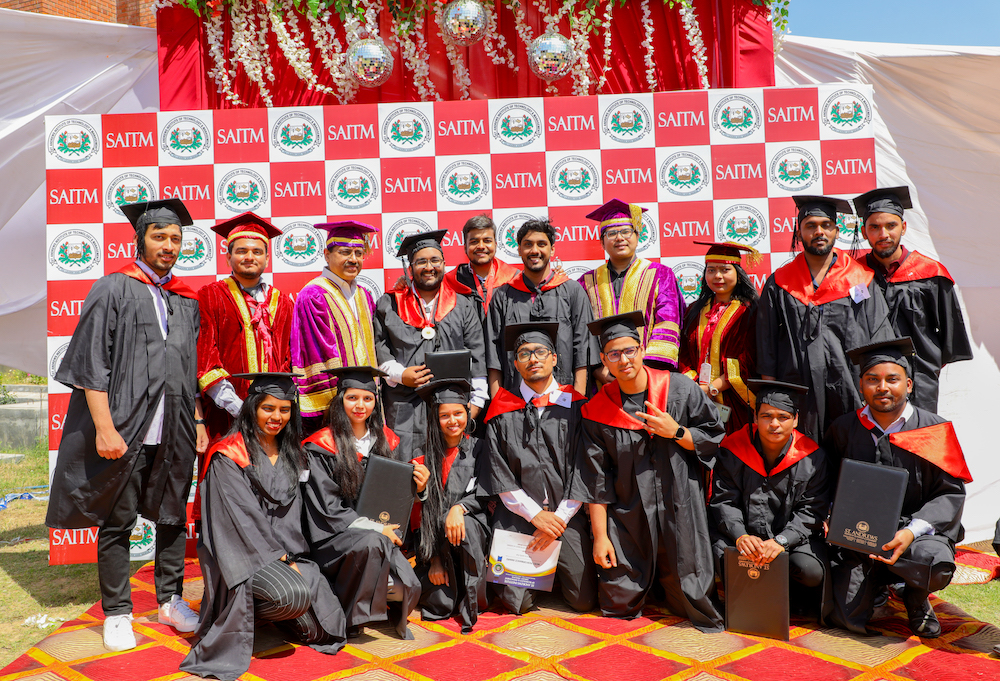
Here is a detailed overview of the typical BCA admission process:
Eligibility Criteria
For BCA admission, candidates typically need to have finished their higher secondary education (12th grade) or equivalent with a background in science or computer science. Some universities may have specific subject requirements or minimum marks criteria.
Application Form
Institutions offering Bachelor of Computer Applications programs usually release admission notifications on their official websites or through advertisements. Candidates need to fill out the application form online or offline, depending on the institution’s procedure. The application form may require personal details, academic records, and sometimes additional documents like identity proof, passport size photographs, etc.
Entrance Exam (if applicable)
Some universities or colleges conduct entrance exams for Bachelor of Computer Application admission. These exams test candidates’ aptitude in areas like mathematics, English, and basic computer knowledge.
Merit List/Selection Criteria
After the submission of applications and, if applicable, the entrance exam, institutions typically prepare a merit list based on the candidates’ academic performance and entrance exam scores. Some institutions may also consider other factors like extracurricular activities.
Counselling/Interview (if applicable)
In some cases, shortlisted candidates might be called for counseling sessions or interviews to assess their suitability for the program.
Seat Allotment
Once the selection process is completed, candidates are allotted seats based on their rank in the merit list and availability of seats in the institution.
Document Verification and Fee Payment
After seat allotment, candidates are required to verify their documents (original and photocopies) and pay the admission fees within the stipulated time frame to confirm their admission.
Orientation and Commencement of Classes
Finally, after the completion of all formalities, institutions conduct an orientation program for newly admitted students, followed by the commencement of regular classes.
BCA Syllabus and Subjects
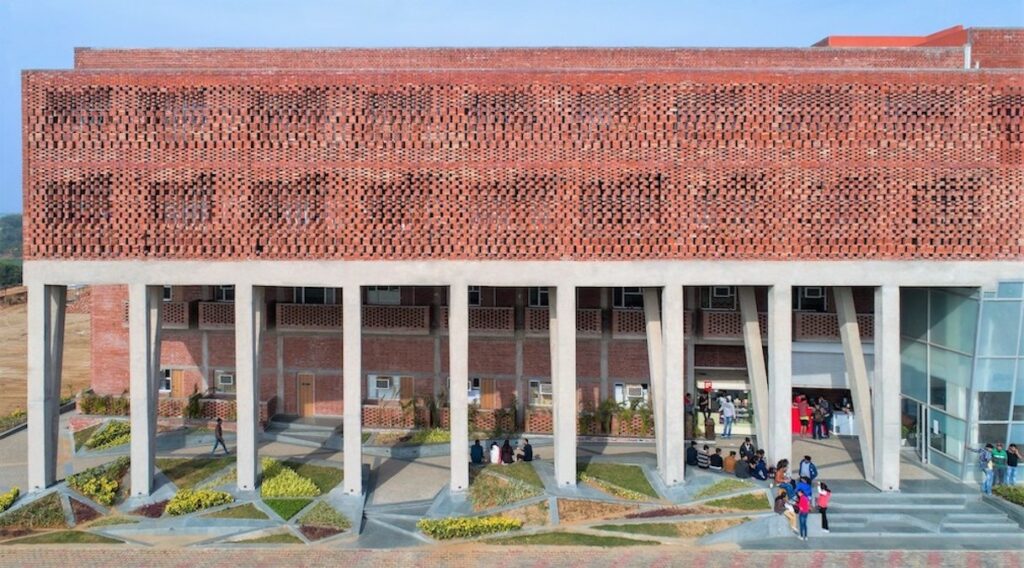
Here’s a detailed outline of the typical BCA syllabus and subjects:
First Year
Semester 1
- Fundamentals of IT and Computers
- Introduction to Computers
- Hardware and Software Basics
- Operating Systems Basics
- Programming in C
- Basics of C Programming
- Data Types, Operators, and Expressions
- Control Structures, Functions, Arrays, and Pointers
- Mathematics I
- Discrete Mathematics
- Algebra and Calculus Basics
- Business Communication
- Communication Skills
- Writing and Presentation Skills
- Digital Electronics
- Logic Gates and Circuits
- Binary System and Boolean Algebra
Semester 2
- Data Structures
- Arrays, Stacks, Queues
- Linked Lists, Trees, Graphs
- Object-Oriented Programming with C++
- Introduction to OOP
- Classes and Objects
- Inheritance, Polymorphism
- Mathematics II
- Probability and Statistics
- Numerical Methods
- Database Management Systems (DBMS)
- Introduction to DBMS
- SQL Queries
- Database Design and Normalization
- Financial Accounting
- Basics of Accounting
- Financial Statements
Second Year
Semester 3
- Operating Systems
- Process Management
- Memory Management
- File Systems and I/O Systems
- Software Engineering
- Software Development Life Cycle (SDLC)
- Software Project Management
- Quality Assurance
- Computer Networks
- Network Models
- TCP/IP Protocol Suite
- Network Security
- Java Programming
- Introduction to Java
- OOP in Java
- Exception Handling, Multithreading
- Web Technology
- HTML, CSS
- JavaScript, PHP
- Web Development Basics
Semester 4
- Computer Organization and Architecture
- CPU Organization
- Memory Hierarchy
- Input/Output Organization
- Microprocessor and Assembly Language
- Introduction to Microprocessors
- Assembly Language Programming
- Interfacing and I/O Systems
- Design and Analysis of Algorithms
- Algorithm Design Techniques
- Complexity Analysis
- Sorting and Searching Algorithms
- Python Programming
- Basics of Python
- Data Structures in Python
- File Handling, Modules, and Packages
- Management Information Systems (MIS)
- Introduction to MIS
- Information Systems for Business
Third Year
Semester 5
- Mobile Application Development
- Introduction to Mobile Computing
- Android Development Basics
- Mobile UI Design
- Artificial Intelligence
- Introduction to AI
- Machine Learning Basics
- AI Applications
- Data Warehousing and Data Mining
- Data Warehousing Concepts
- Data Mining Techniques
- Business Intelligence
- E-commerce
- E-commerce Basics
- Online Business Strategies
- Electronic Payment Systems
- Project Management
- Project Planning and Scheduling
- Resource Allocation
- Risk Management
Semester 6
- Cloud Computing
- Cloud Service Models
- Cloud Deployment Models
- Cloud Security
- Cyber Security
- Information Security Basics
- Cryptography
- Network Security Protocols
- Big Data Analytics
- Introduction to Big Data
- Hadoop and Spark
- Data Analytics Techniques
- Internet of Things (IoT)
- IoT Concepts and Applications
- IoT Architecture
- IoT Security
- Major Project
- Project Work
- Dissertation
- Viva Voce
Elective Subjects (Varies by Institution)
- Digital Marketing
- Blockchain Technology
- Robotics
- Game Development
- Human-Computer Interaction
Practical and Laboratory Work
- Programming Labs (C, C++, Java, Python)
- Database Management Lab
- Web Development Lab
- Networking Lab
Entrance Exams for BCA
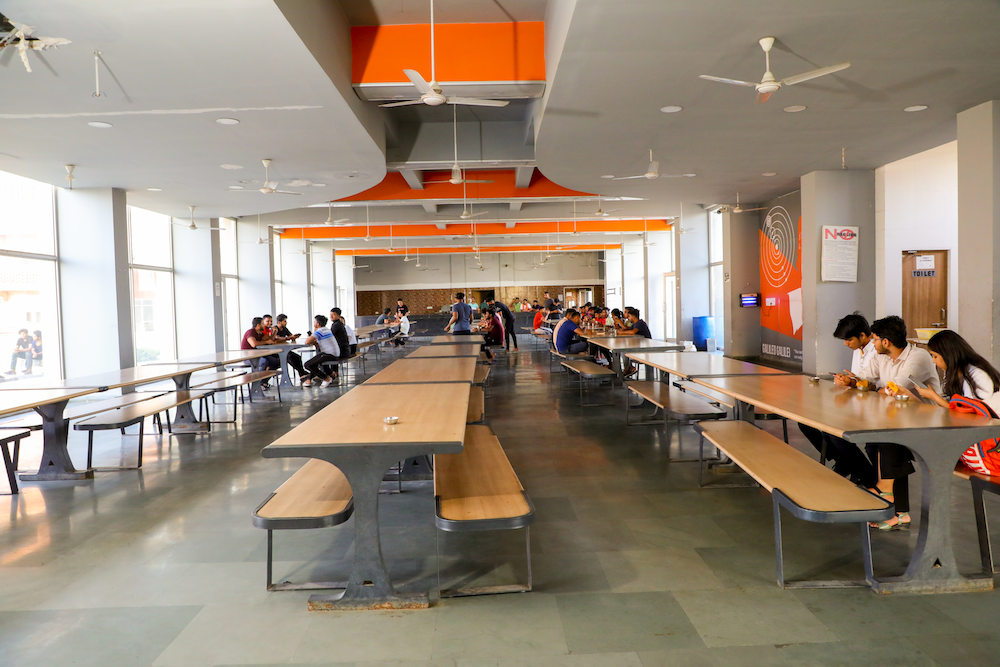
Here are some common BCA entrance exams conducted for admission to Bachelor of Computer Application programs in India:
IPU CET BCA
Conducted by Guru Gobind Singh Indraprastha University (GGSIPU), Delhi, for admission to computer science undergraduate programs offered by colleges affiliated with the university.
AIMA UGAT
Conducted by the All India Management Association (AIMA), UGAT (Under Graduate Aptitude Test) is accepted by various colleges across India for admission to computer science undergraduate programs.
BHU UET
Banaras Hindu University Undergraduate Entrance Test (BHU UET) for admission to various undergraduate programs, including BCA, offered by BHU.
LPU NEST
Lovely Professional University National Entrance and Scholarship Test (LPU NEST) for admission to computer science undergraduate programs offered by Lovely Professional University (LPU), Punjab.
NPAT BBA/BMS
NMIMS Programs After Twelfth (NPAT) for admission to undergraduate programs, including BCA, offered by NMIMS (Narsee Monjee Institute of Management Studies), Mumbai.
KU-CET
Kurukshetra University Common Entrance Test (KU-CET) for admission to various undergraduate programs, including BCA, offered by Kurukshetra University, Haryana.
DUET
Delhi University Entrance Test (DUET) conducted by the National Testing Agency (NTA) for admission to various undergraduate programs, including BCA, offered by colleges affiliated with Delhi University.
CUET
Christ University Entrance Test (CUET) conducted by Christ University, Bangalore, for admission to computer science undergraduate programs offered by the university.
CUET BCA
Chandigarh University Common Entrance Test (CUET) for admission to computer science undergraduate programs offered by Chandigarh University, Punjab.
Fee Structure of BCA Courses

Here’s a general overview of the BCA course fee structure in India:
Government/Public Institutions
Govt colleges and institutions typically have lower tuition fees compared to private colleges. The annual fee for BCA courses in government institutions can range from ₹10,000 to ₹50,000 depending on the state and institution.
Private Institutions
Private colleges and universities often have higher tuition fees compared to government institutions. The annual fee for BCA courses in private institutions can range from ₹50,000 to ₹2,00,000 or more depending on factors such as reputation, infrastructure, and location.
Foreign Institutions
For BCA courses offered by foreign universities or institutions through collaborations or study abroad programs, the fee structure can vary significantly. Tuition fees for international computer science undergraduate programs can range from a few lakhs to several lakhs per annum, excluding additional expenses like accommodation, living expenses, and travel.
Scholarships and Financial Aid
Many colleges and universities offer scholarships, grants, or financial aid to eligible students based on merit, need, or specific criteria. Students can explore scholarship options available at the institution or through external sources to reduce the financial burden of pursuing a BCA course.
Additional Expenses
Apart from tuition fees, students may incur additional expenses such as hostel fees (if applicable), examination fees, library fees, laboratory fees, study materials, transportation, and other miscellaneous expenses.
Top BCA Colleges in India
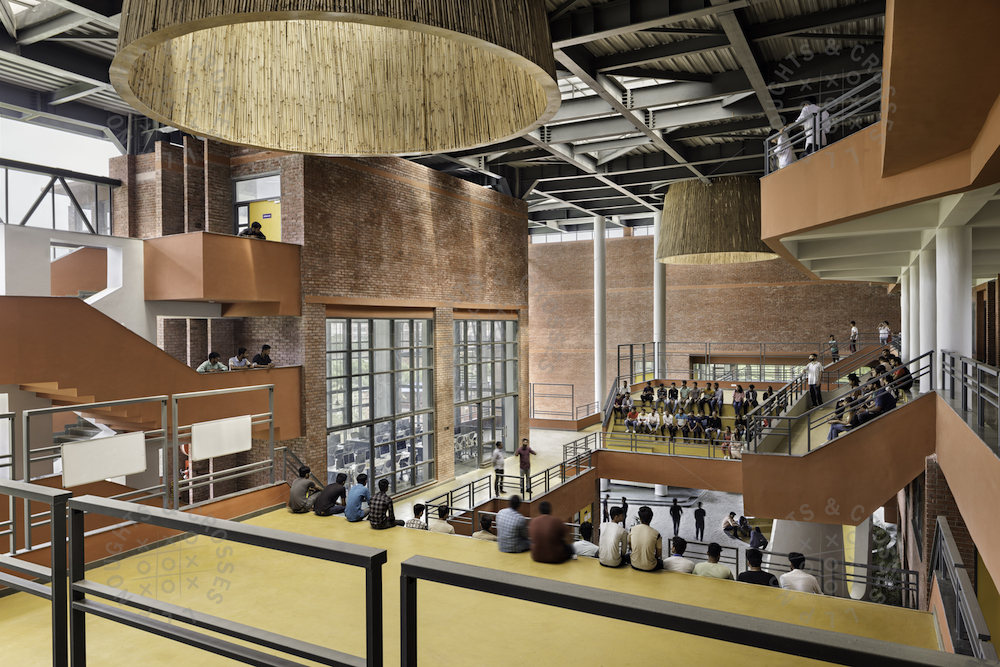
Here are some institutions widely regarded for their computer science undergraduate programs:
Christ University, Bangalore
Known for its quality education, excellent infrastructure, and strong industry connections.
St. Andrews Institute of Technology and Management (SAITM), Gurgaon
SAITM offers an BCA program with specializations including finance. It is affiliated with Maharshi Dayanand University.
Banaras Hindu University (BHU), Varanasi
Renowned for its computer science department and emphasis on research and innovation.
St. Xavier’s College, Mumbai
Offers a comprehensive Bachelor of Computer Application program with a focus on practical learning and industry exposure.
Presidency University, Bangalore
Known for its rigorous curriculum, experienced faculty, and placement opportunities.
Lovely Professional University (LPU), Punjab
Known for its modern campus, industry tie-ups, and placement opportunities in reputed companies.
Jamia Millia Islamia, New Delhi
Offers a Bachelor of Computer Application program with a strong emphasis on research and development in computer applications.
Vellore Institute of Technology (VIT), Vellore
Known for its state-of-the-art infrastructure, industry collaborations, and placement records..
Pune Institute of Computer Technology (PICT), Pune
Known for its strong academic curriculum, experienced faculty, and placement opportunities in top IT companies.
Top Private Colleges for BCA Program

Here are some of the top private colleges for computer science undergraduate programs:
Christ University, Bangalore
Known for its rigorous academic curriculum, experienced faculty, and excellent placement records in reputed companies.
St. Andrews Institute of Technology and Management (SAITM), Gurgaon
SAITM offers an BCA program with specializations including finance. It is affiliated with Maharshi Dayanand University.
Presidency University, Bangalore
Offers a well-rounded BCA program with a focus on practical learning, industry collaborations, and career development initiatives.
Lovely Professional University (LPU), Punjab
Known for its vibrant campus, international collaborations, and placement opportunities in top companies both in India and abroad.
Chandigarh University, Punjab
Offers a comprehensive BCA program with a focus on experiential learning, industry exposure, and entrepreneurship development.
Manipal Institute of Technology (MIT), Manipal
Known for its academic excellence, state-of-the-art infrastructure, and industry partnerships that provide ample opportunities for practical learning and placements.
Vellore Institute of Technology (VIT), Vellore
Known for its world-class infrastructure, research-driven approach, and strong industry connections that provide ample opportunities for internships and placements.
Jaipur National University, Jaipur
Offers a well-structured BCA program with a focus on industry-relevant skills, practical learning, and placement assistance in reputed companies.
Top Government Colleges for BCA
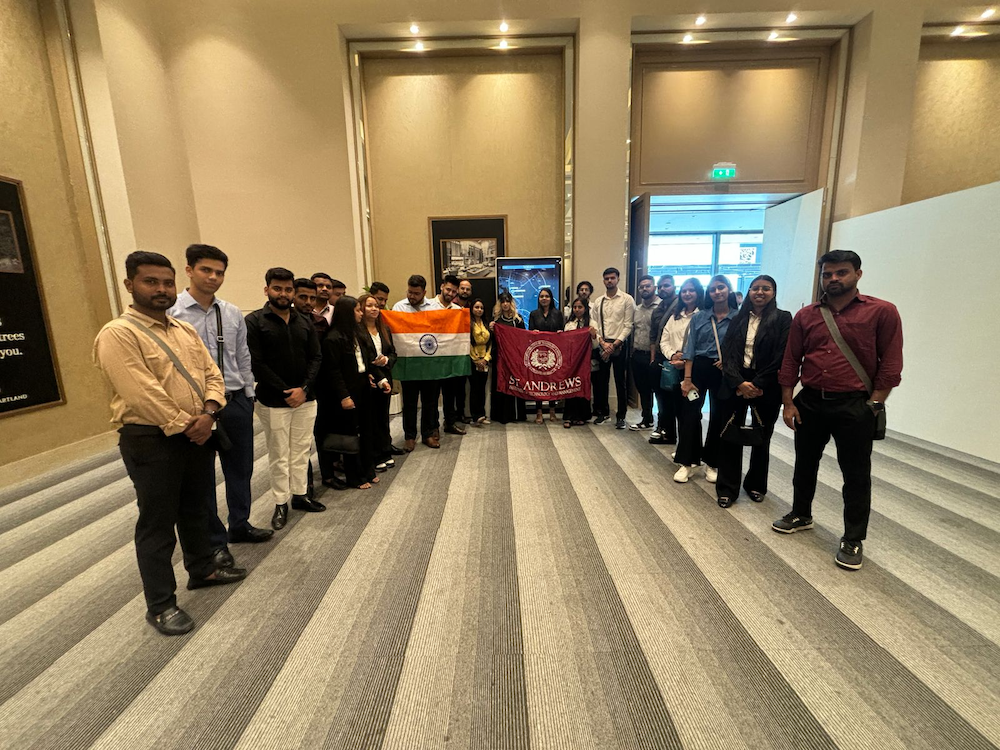
Here are some of the top government colleges for BCA programs:
University of Delhi (DU)
DU offers computer science undergraduate programs in various affiliated colleges like Shaheed Sukhdev College of Business Studies (SSCBS), Deen Dayal Upadhyaya College, and Maharaja Agrasen College, among others.
St. Andrews Institute of Technology and Management (SAITM), Gurgaon
SAITM offers an BCA program with specializations including finance. It is affiliated with Maharshi Dayanand University.
Banaras Hindu University (BHU), Varanasi
The BCA college at BHU’s Faculty of Science offers a program known for its academic rigor and industry relevance.
Pune University (Savitribai Phule Pune University)
Pune University offers computer science undergraduate programs in several affiliated colleges known for their quality education and placement opportunities.
Jawaharlal Nehru University (JNU), New Delhi
The BCA college at JNU’s School of Computer and Systems Sciences offers a program known for its interdisciplinary approach and research focus.
Aligarh Muslim University (AMU)
AMU offers a BCA program known for its strong foundation in computer applications and practical learning opportunities.
University of Mumbai
The University of Mumbai offers computer science undergraduate programs in affiliated colleges like KJ Somaiya College of Science and Commerce, Jai Hind College, and others.
University of Calcutta
The University of Calcutta offers computer science undergraduate programs in affiliated colleges known for their academic excellence and industry ties.
University of Madras
The University of Madras offers computer science undergraduate programs in affiliated colleges known for their comprehensive curriculum and industry-oriented approach.
Osmania University, Hyderabad
Osmania University offers computer science undergraduate programs in affiliated colleges known for their strong faculty and research infrastructure.
University of Rajasthan, Jaipur
The University of Rajasthan offers computer science undergraduate programs in affiliated colleges known for their academic reputation and placement opportunities.
Career Opportunities after BCA

Some common career paths include:
Software Developer/Engineer
Developing, designing, and maintaining software applications for various platforms and industries.
Web Developer
Designing and creating websites and web applications using programming languages like HTML, CSS, JavaScript, and frameworks like Angular, React, or Vue.js.
Database Administrator
Managing and maintaining databases, ensuring data security, and optimizing database performance.
Systems Analyst:
Analyzing business requirements, designing IT systems, and recommending technological solutions to improve efficiency and productivity.
Network Administrator
Managing computer networks, ensuring network security, and troubleshooting network issues.
IT Consultant
Providing expert advice to organizations on IT strategies, infrastructure setup, software selection, and system integration.
Cybersecurity Analyst
Protecting computer systems, networks, and data from cyber threats by implementing security measures, conducting risk assessments, and monitoring for security breaches.
Mobile App Developer
Creating mobile applications for smartphones and tablets using platforms like Android or iOS.
Quality Assurance (QA) Engineer
Testing software applications to ensure they meet quality standards and function correctly.
Business Intelligence (BI) Analyst
Analyzing data to provide insights and support decision-making processes within organizations.
Project Manager
Leading IT projects, managing resources, timelines, and budgets to ensure successful project delivery.
Entrepreneur/Startup Founder
Starting their own application development firm, web development agency, or tech startup to create innovative products or services.
Benefits of Pursuing BCA

Pursuing a Bachelor of Computer Applications (BCA) offers several benefits:
Lucrative Career Opportunities
BCA graduates are in high demand across industries due to the increasing reliance on technology. They can explore roles in application development, web development, database administration, cybersecurity, and more.
Versatility
BCA equips students with a diverse skill set, including programming languages, application development methodologies, and problem-solving skills, making them adaptable to various job roles and industries.
Opportunities for Advancement
With experience and further education, BCA graduates can advance to higher positions such as software architect, project manager, or IT consultant, leading to increased responsibilities and higher salaries.
Entrepreneurial Opportunities
BCA graduates have the option to start their own application development firms, web development agencies, or tech startups, leveraging their knowledge and skills to create innovative solutions.
Global Demand
The demand for IT professionals transcends geographical boundaries, offering BCA graduates opportunities to work internationally and explore diverse cultural and professional environments.
Continuous Learning
The field of computer applications is dynamic and constantly evolving, providing BCA graduates with opportunities for lifelong learning and skill enhancement to stay competitive in the industry.
Job Satisfaction
Working in the IT sector often involves solving challenging problems, contributing to innovative projects, and witnessing the tangible impact of one’s work, leading to job satisfaction and fulfillment.
Top Companies Hiring BCA Graduates
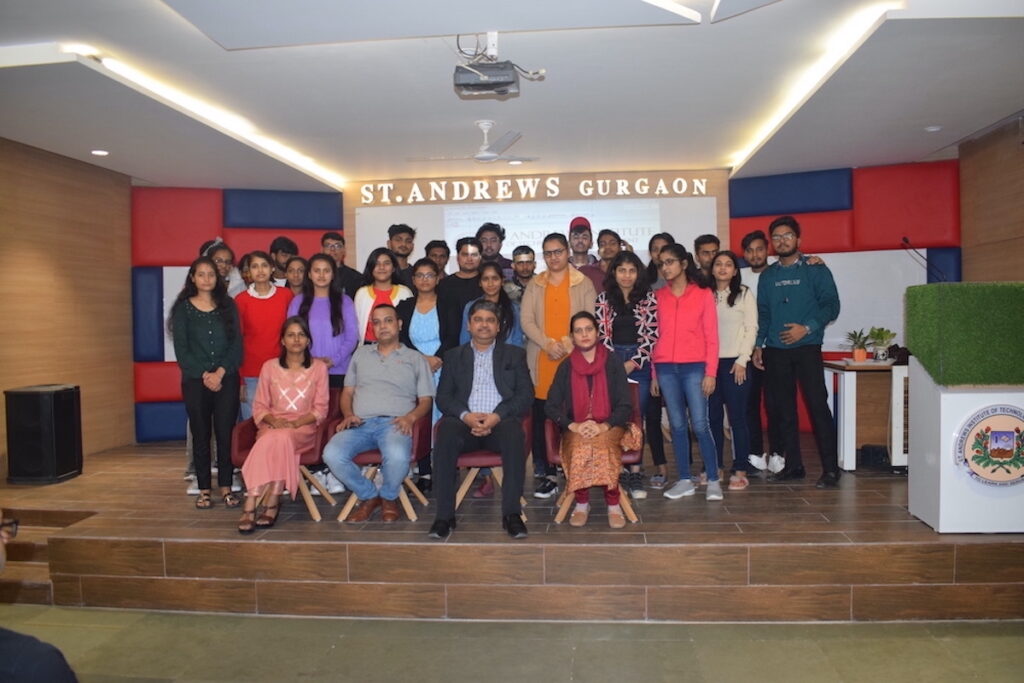
Here are some of the top companies known for hiring BCA graduates:
Tata Consultancy Services (TCS)
TCS is one of the largest IT services companies globally, offering opportunities for BCA graduates in application development, consulting, and IT services.
Infosys
Infosys is a multinational IT consulting and outsourcing company that recruits BCA graduates for roles in application development, testing, consulting, and support services.
Wipro
Wipro is a leading global IT services company that hires BCA graduates for application development, testing, digital transformation, and consulting roles.
Accenture
Accenture is a multinational professional services company that recruits BCA graduates for various roles in technology consulting, application development, and IT services.
IBM
IBM is a multinational technology company that offers opportunities for BCA graduates in application development, consulting, analytics, and IT services.
HCL Technologies
HCL Technologies is a global IT services company that hires BCA graduates for application development, testing, infrastructure management, and consulting roles.
Cognizant
Cognizant is a multinational IT services company that recruits BCA graduates for computer programming, testing, consulting, and IT services roles.
Tech Mahindra
Tech Mahindra is an IT services company that offers opportunities for BCA graduates in computer programming, testing, consulting, and digital transformation.
Capgemini
Capgemini is a global consulting, technology, and outsourcing company that hires BCA graduates for computer programming, consulting, and IT services roles.
Amazon
Amazon is a multinational technology company that recruits BCA graduates for roles in application development, cloud computing, e-commerce, and digital services.
Microsoft
Microsoft is a leading technology company that offers opportunities for Bachelor of Computer Applications graduates in computer programming, cloud computing, artificial intelligence, and digital innovation.
Google is a multinational technology company that hires BCA graduates for roles in software development, product management, data analysis, and digital marketing.
Facebook is a social media and technology company that offers opportunities for BCA graduates in software development, data analysis, digital marketing, and product management.
Oracle
Oracle is a multinational technology company that recruits BCA graduates for roles in software development, database management, cloud computing, and enterprise solutions.
Salary After BCA
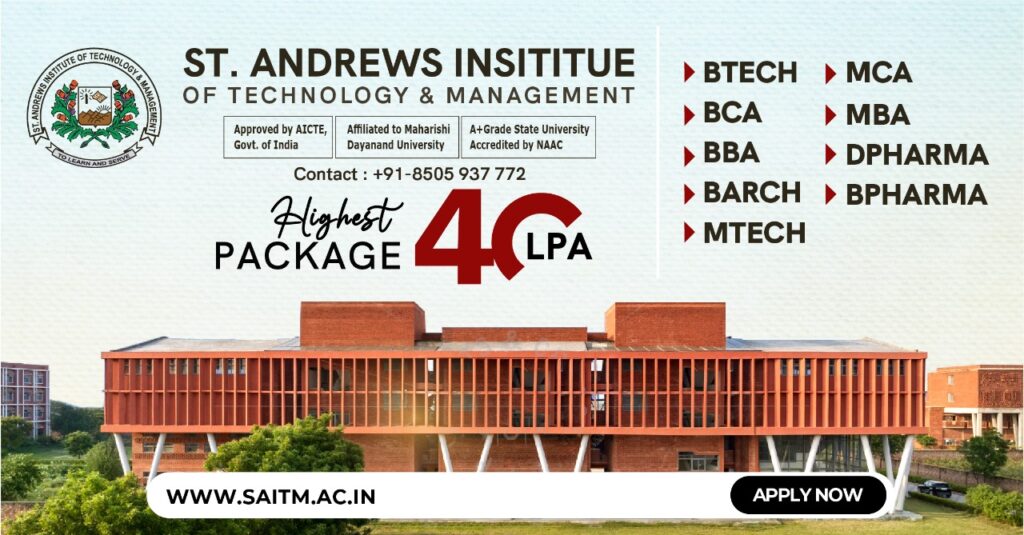
Here’s a general overview of salary ranges for BCA graduates:
Entry-Level Positions
BCA graduates typically start their careers in entry-level positions such as software developer, web developer, technical support engineer, or system analyst. Entry-level salaries for BCA graduates in India can range from ₹2.5 lakhs to ₹5 lakhs per annum, depending on the factors mentioned above.
Mid-Level Positions
With a few years of experience, BCA graduates can progress to mid-level positions such as senior software developer, database administrator, project manager, or IT consultant. Mid-level salaries for BCA graduates in India can range from ₹5 lakhs to ₹10 lakhs per annum, or higher, depending on experience and expertise.
Senior-Level Positions
BCA graduates with significant experience and expertise may advance to senior-level positions such as software architect, IT manager, senior consultant, or director of technology. Senior-level salaries for BCA graduate in India can range from ₹10 lakhs to ₹20 lakhs per annum or more, depending on the role and company.
Specialized Roles
BCA graduates who specialize in niche areas such as cybersecurity, artificial intelligence, data science, or cloud computing may command higher salaries due to the demand for specialized skills. Salaries for specialized roles can vary widely based on demand and expertise but often exceed the average salary ranges mentioned above.
FAQs
Should I go for BCA from IGNOU?
Opting for a BCA from IGNOU can be advantageous due to its flexible learning options, affordability, and recognized accreditation. IGNOU offers distance education, enabling students to study at their own pace while balancing other commitments.
The program covers a wide range of subjects in computer applications, providing a strong foundation for a career in IT. However, students should consider factors like self-discipline, as distance learning requires motivation and dedication.
Additionally, practical experience may need to be supplemented through internships or self-study. Overall, IGNOU’s BCA can be a valuable choice for those seeking flexibility and affordability in pursuing a career in computer applications.
I have finished my 10+2 with Arts stream.
While having completed your 10+2 with an Arts stream may not directly align with the typical academic background for a BCA program, it’s still possible to pursue it.
You may need to fulfill additional requirements or bridge courses in mathematics and computer science before enrolling. computer science undergraduate programs usually require a strong foundation in mathematics and logic, which you may need to develop independently or through preparatory courses.
Additionally, demonstrating a keen interest in computer applications through self-learning or relevant certifications could strengthen your application. Consider reaching out to institutions offering BCA programs to inquire about their specific admission criteria and any preparatory options available.
Can I do BCA without maths?
Yes, some institutions provide computer science undergraduate programs that do not strictly require mathematics at the 10+2 level, in line with BCA eligibility criteria. These programs often emphasize the practical aspects of computer applications, like software development, web design, and data management, rather than on advanced mathematical concepts.
However, it’s essential to research and carefully check the admission criteria of each institution, as some may still prefer candidates with a background in mathematics or may offer alternative pathways for students without it.
Additionally, be prepared to engage in self-study or extra coursework to strengthen your mathematical and logical reasoning skills throughout the program.
Who is eligible for BCA after 12th arts?
Candidates who have completed their higher secondary education (12th grade) in the Arts stream are eligible for BCA admission provided they have studied Mathematics or Computer Science as one of their subjects.
While many institutions accept students from diverse backgrounds under BCA eligibility criteria, some may prefer candidates with a strong foundation in relevant subjects. BCA programs equip students, including those from the arts, with skills in programming and IT management, making it accessible for those aiming for a career in technology.
Can I do BCA after 12th Commerce?
Yes, you can pursue BCA after completing your 12th grade in Commerce. While some universities may prefer candidates with a background in Mathematics or Computer Science, many institutions accept students from the Commerce stream.
Computer science undergraduate programs, aligning with BCA eligibility, offer foundational courses in programming and IT management. These enable commerce students to smoothly transition into the field of information technology.
Additionally, elective courses and practical training opportunities offer a well-rounded education in computer applications, making BCA a viable option for commerce students interested in pursuing a career in the tech industry.
What is required to do BCA after 12th?
To pursue BCA after completing 12th grade, candidates typically need to meet certain eligibility criteria. This includes having completed higher secondary education from a recognized board of education such as CBSE, ICSE, or state boards.
While some universities may require a background in Mathematics or Computer Science, many institutions accept students from all streams (Science, Commerce, and Arts).
Additionally, BCA eligibility typically requires candidates to be at least 17 years old at the time of admission. A strong academic record coupled with a passion for technology can significantly enhance the prospects of securing admission to a BCA program after the 12th grade.

